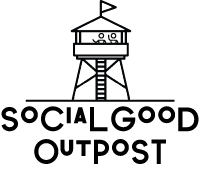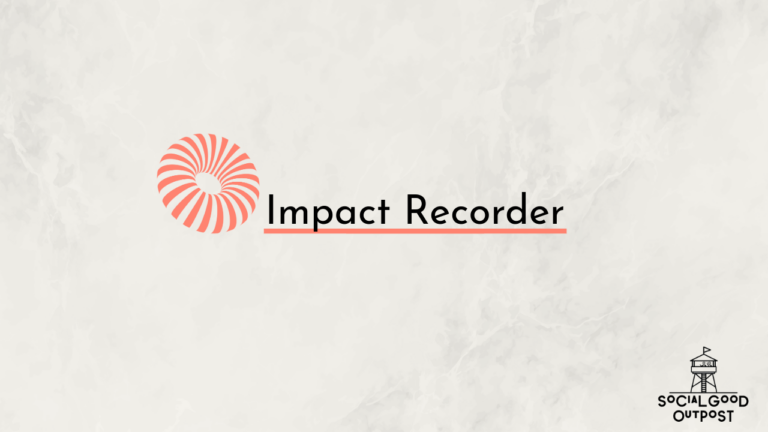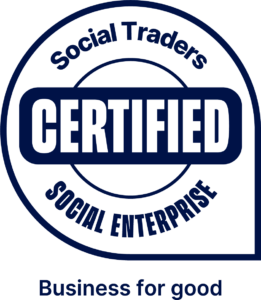Making Good Impact a Good Habit
My goal is to help you turn impact measurement from a difficult task into a natural part of your daily operations.
Why Impact Measurement matters
Good impact measurement:
-
- Shows whether you’re actually creating the change you set out to make
- Helps you get funding (grants, investments) by showing evidence of your social return on investment
- Guides strategic decisions about where to focus your resources and evolve your programs / offerings
- Help you keep motivation and momentum, seeing the difference your work is making
- Can help you to build partnerships and collaborations who are working on the same issues
- Helps you to ensure your solution is right for the issues you’re working on and the people you’re working to benefit
Habits matter more than good intentions
When impact measurement becomes a habit:
-
- You’ll capture data in real-time, making it more accurate and reliable
- Your team will naturally incorporate it into their workflow
- You’ll spot trends and issues earlier, allowing you to adjust programs before problems escalate
- Your reporting becomes less stressful and more insightful
- Your impact communication will stand out in funding applications
- You can demonstrate your impact to stakeholders
Starting small: building your impact measurement habits
1. The “End of Day 5”
Take five minutes at the end of each day to jot down key numbers. Did you help any clients today? Run any workshops? Make any referrals? Quick daily records beat trying to remember things weeks later. This data directly shows your community reach and immediate impact.
Extra helpful: Connect your calendar to our Impact Recorder, and it will feed through your impact activities for you.
2. The “Weekly Check-In”
Schedule 30 minutes every Monday morning to review last week’s impact data. Make it as routine as your team meetings. This regular review helps you spot emerging trends and shortens the feedback loop, and keeps you in close touch with the difference you are making.
Alternative tip: if you don’t yet have a regular data collection practice, schedule time each week to focus on your next step. Is it making a survey for your program participants? Is it sending a survey to recent workshop attendees? Or is it starting with fundamentals and making sure you have a solid, up to date logic model? (We can help you with that with our free template, or collaborative workshops to create yours)
3. The “Monthly Story Round-Up”
Set aside time monthly to collect stories and qualitative data. Chat with your team about the wins and challenges they’ve observed. These stories bring your numbers to life and help you understand the ‘why’ behind your impact. Save these insights to turn them into short stories of impact for reports, social media and impact communications.
Making new impact measurement habits work
Our tips:
-
- Start with one habit at a time, and start with what’s doable for your organisation with the work that you do
- Book time in your calendar to have dedicated impact measurement focus during your week
- Make it easy – keep your tracking tools simple and accessible (we recommend checking out our new tool, Impact Recorder, which simple, easy and designed to build habits)
- Share your progress with others – maybe form an accountability and moral support group where you all work on your impact measurement and keep each other encouraged
The Ripple Effect
When impact measurement becomes second nature, something magical happens. You’ll find yourself:
-
- Making better decisions because you have real data at your fingertips
- Telling more compelling stories to supporters and stakeholders
- Improving your programs based on evidence
- Spending less time on grant applications because you already have the data handy
- Understanding your true cost per impact, helping you allocate resources more effectively
- Building stronger cases for systemic change based on proven outcomes
The bigger picture: impact measurement and social change
Regular impact measurement isn’t just about your organisation – it strengthens the entire social enterprise sector. When we all measure and share our impact:
-
- We can demonstrate the collective value of social enterprise to the economy
- We create benchmarks that help all social enterprises improve
- We build a stronger case for supportive policies and funding
- We can identify gaps in service delivery and opportunities for collaboration
- We contribute to a growing evidence base for social innovation
Your Next Steps
-
- Choose one small impact measurement habit to start with this week
- Set up a simple system to support it (could be a spreadsheet, database in Notion, or our Impact Recorder)
- Share your commitment with your team
- Review and adjust as you grow in capacity and fluency
Australia’s most successful social enterprises didn’t start with perfect impact measurement systems – they built them gradually through consistent habits.
As one of my favourite sayings goes, “the best time to plant a tree was 10 years ago. The second best time is now”. Same for new habits…
The goal isn’t perfection – it’s progress. Start small, be consistent, and watch how these simple habits transform your approach to impact measurement.
Featured image generated with Gemini.





